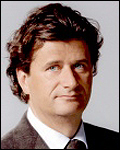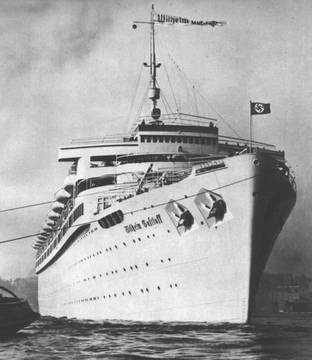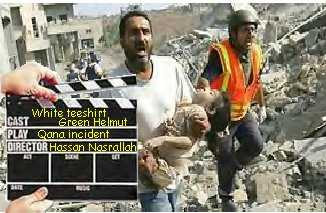
Underneath the celebrations this week to mark the 26th anniversary of the August strikes which led to the formation of the first free trade union in the communist bloc, lurks bitterness and incrimination.
The news that Lech Walesa was leaving Solidarity, and did not want to share a platform at the celebrations with his old prison mate from martial law Solidarity days, President Lech Kaczynski, seemed to surprise many outside Poland. But few were surprised here.
Walesa says many things, but this time he appears to be serious.
“They (Solidarity) have backed the Kaczynskis too much," Walesa told PAP news agency. "I don't want to be involved with that. It is no longer my Solidarity, Something is wrong with it."
Walesa has been a lonely figure politically for a longtime in Poland. At one time or another he seems to have wound up most of his old friends.
The bitter spat with the Kaczynski brothers goes back at least to the early nineties when Lech was in the middle of what his critics say was a dictatorial presidency. Relations between Walesa and many of the more right wing, and much of the time more Catholic, members of Solidarity were never good. This reached a peak during the chaos of the Olszewski government of 1992, with both sides accusing the other of planning a coup d\tat.
In fact, he tried to run the Solidarity movement the same way he tried to run the presidency. Walesa has always seen himself as a pragmatist. Principles come second to realities. And that often pit him up against the Solidarnosc fundamentalists for whom the purity and democracy of the revolution was everything.
Two of these fundamentalists have been in the news this week. Anna Walentynowicz, whose sacking from the Gdansk shipyard was the initial spark which set off the Solidarity strike in ‘Lenin’ shipyard, and Andrzej Gwiazda, one of the main negotiators during the strike.
Being fundamentalists they see the Solidarity revolution as being only half done. They think the ex-communists still have too much influence and too many have got rich. So when deputy defense minister Antoni Macierewicz claimed that many of Poland’s post 1989 foreign ministers were Soviet spies, Walentynowicz and Gwiazda leapt to his defense.
And then we get the news of National Institute of Remembrance (Poland’s Truth and Reconciliation Committee, but without the reconciliation) releasing evidence that Jacek Kuron, one of the leading Solidarity intellectuals, had had talks with the communist secret services in the late 1980s.
Kuron, it is said, wanted to exclude some groups within Solidarity from the Round Table talks of 1989.
Walesa has said that he had authorized Kuron and twenty other members of the union to talk and negotiate with the security forces. Continuity after the end of communism was vital, he said.
Not so say the fundamentalists.
Kuron was always held in suspicion by many in Solidarity. He was secular, a son of a Communist. Educated. Reformed Nomenclature.
But the main cleavage between the various parts that made up Solidarnosc are represented today by the various parties we have both in government and outside. Law and Justice, League of Polish Families are in government and come from the conservative/fundamentalist wing of Solidarity. The more secular, pragmatic free market orientated Civic Platform and perhaps the Democratic Party and individuals from the old Freedom Union are in opposition. The gap between the different Solidarity factions has never been wider.
And then we have Lech Walesa, all by himself, as usual.
More?
Walesa snubbed on Solidarity celebration UPI, Sept 1
The Polish politics of personal destruction leave few untouched Polish Outlook,





















